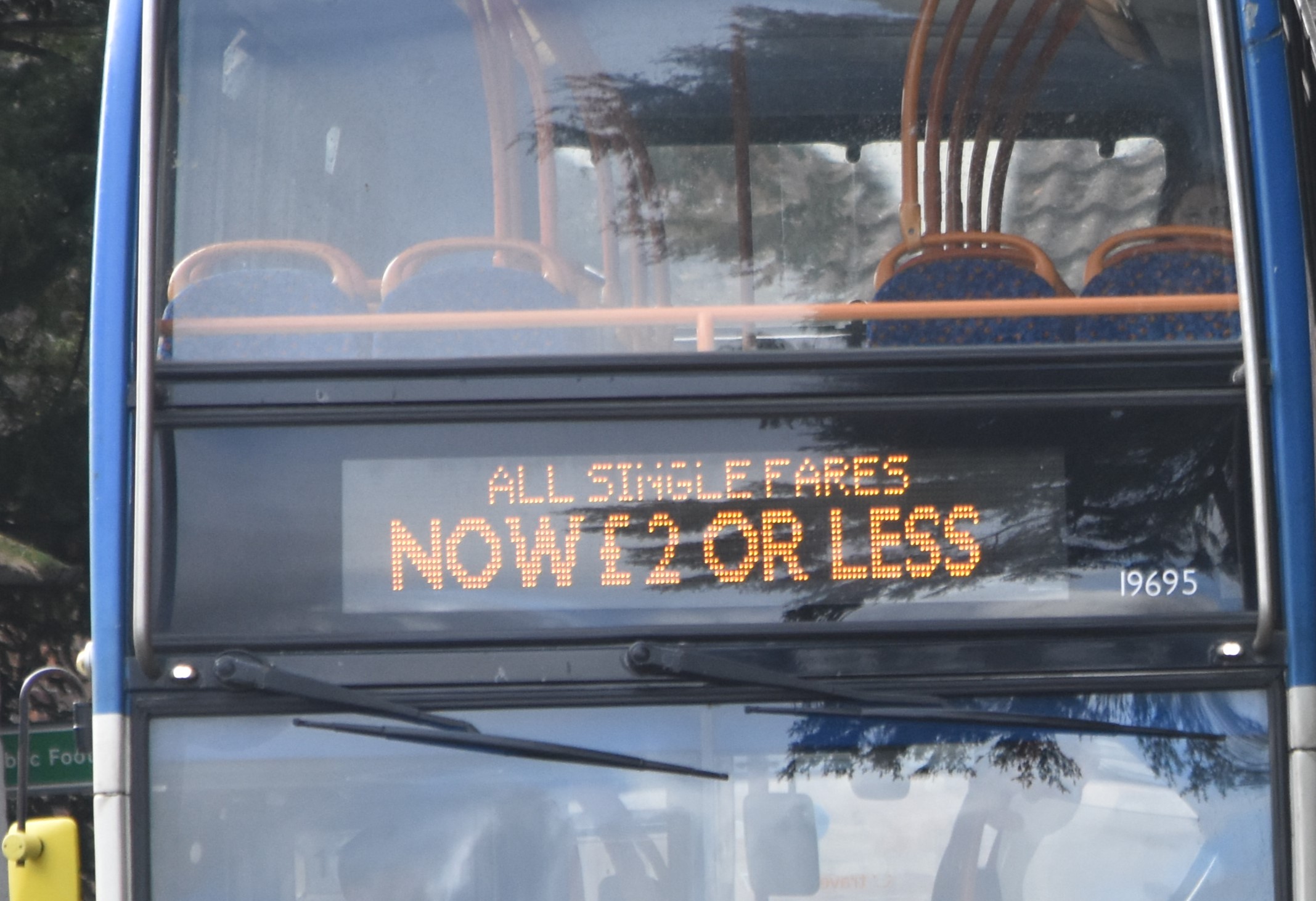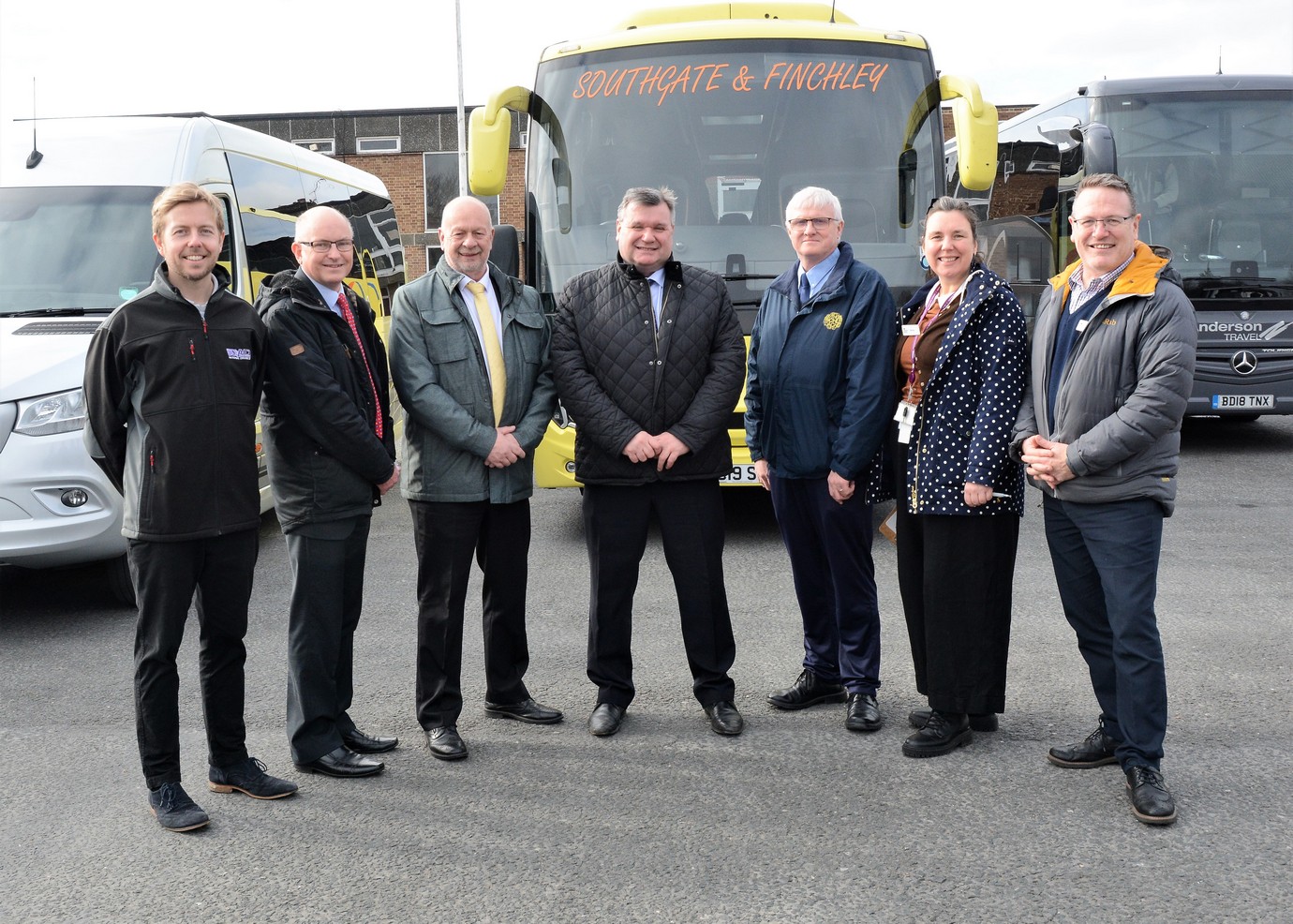Finally, we have another tranche of funding to support the bus industry: £75 million to maintain the £2 bus fare cap in England for another three months and a further £80 million to “continue support for critical bus services around England” also for another three months. Another short-term fix.
I’m hearing that the Treasury was actually quite sympathetic to a longer-term funding package and that, on this occasion, it was No 10, not the Treasury, that was the problem-child with advisers in Downing Street apparently “sceptical” about the scale of service cuts that might follow if further support was not forthcoming. My only response to that is these advisers need to “get real”.
In the past few weeks, MPs from all parties have been asking increasing numbers of parliamentary questions about the bus industry. They’re seeking information on ongoing funding, progress with the manufacture of zero-emission buses and so forth, with MPs increasingly aware of the threat to bus services in their constituencies if the government doesn’t maintain long-term support.
Parliamentary questions in themselves are never going to result in material policy change. Nonetheless, I hope MPs keep up the volume and continue to hold ministers to account as best they can!
Equity for bus needed under minimum service levels work?
Last month, the Department for Transport (DfT) issued a consultation paper on “Minimum Service Levels for Passenger Rail” as part of the government’s plans to legislate to require minimum service levels for a range of public services when strike action is called. Public transport is one key sector to benefit from this legislation.
The consultation has identified passenger rail as a priority for the introduction of minimum service levels, “taking account of the important role railways play in ensuring people can access key services such as healthcare and education as well as being able to get to work” and because “our railways are at the heart of our public transport system.”
As I read the consultation, I found myself wondering why the DfT had not issued a similar consultation for the bus industry. After all, buses also “are at the heart of our public transport system” and play an important role “in ensuring people can access key services … as well as being able to get to work.”
Now, I fully understand that the structure and dynamics of the bus industry are very, very different to the rail industry, and I have to assume that there is every intention to issue a consultation on minimum service levels for the bus industry. I can also see that it may be a more complex issue to determine minimum service levels for buses compared to rail, given the multitude of bus operators, the significantly greater number of individual services and service patterns, and so on.
But the bus industry is as much at risk of strikes as rail, as indeed we have seen in recent weeks. So I hope there will be a consultation on minimum service levels for the bus industry, and soon.
Northern Ireland progress with Windsor Framework
From a Westminster Watcher’s perspective, the last week or so has been dominated by Rishi Sunak’s negotiation of the Windsor Framework and the leaking of more than 100,000 WhatsApp messages between the former health secretary, Matt Hancock, and any number of Cabinet and junior ministers and advisers on their handling of the pandemic. A word on each, if I may be indulged.
At one level, the Windsor agreement is a triumph for Mr Sunak. He has delivered an agreement addressing the problems of the Northern Ireland Protocol that Theresa May, Boris Johnson and Liz Truss failed to fix. The immediate reaction was one of near-universal approval of the Windsor Framework, even from hard-Brexiteers on the Conservative European Research Group (ERG).
However, Mr Sunak’s claims about the Windsor Framework are somewhat at odds with the EU’s interpretation of exactly what has been agreed – and in some important respects. Both the Democratic Unionist Party (DUP) and the ERG are now analysing the Framework with lawyers in detail and could yet come out against it.
When they see that the Framework simply softens the application of the Northern Ireland Protocol but does not remove it, they may have reason to think twice about backing it – and the European Court of Justice will still have final jurisdiction notwithstanding the “Stormont brake”. The devil is, as ever, in the detail, and the detail might yet be too much for the DUP and ERG to swallow.
Pandemic inquest could be difficult for government
For me, the WhatsApp messages highlight that, in many important respects, the impositions placed on us all were sometimes completely unnecessary, with ministers knowing that was the case, or at best that they were ill-thought-through. As I write, the Daily Telegraph looks set to reveal more and more of these WhatsApp messages over the coming days, and life could become very uncomfortable indeed for the government.
Danger looms elsewhere in the near future too. If the Chancellor fails to respond to the growing chorus of demands from business and his own backbenchers to cut taxes in his Budget on 15 March, and specifically to withdraw the increase in Corporation Tax to 25p, then the Prime Minister may find that today’s goodwill on the backbenches courtesy of the Windsor Framework rapidly starts to evaporate.
And if the Conservatives get crushed in the local elections – and all the signs are that they will – then Mr Sunak may find his hold on power under serious pressure. Mr Sunak doubtless enjoyed a warm glow of success in the immediate aftermath of the Windsor Framework announcement and the plaudits he received for its delivery. That warm glow could be very short-lived.
























